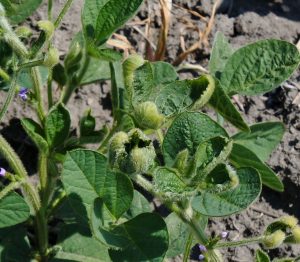On August 24, the state’s Dicamba Task Force voted to recommend a cutoff date of April 15 next year for the use of all dicamba products, including Monsanto’s XtendiMax and BASF’s Engenia, meaning farmers could basically only use the product as a burn down, not post emerge.
“By just focusing on the burn-down, growers aren’t going to get the full advantage of an Engenia-like product,” said BASF Midwest Technical Service Manager Gary Schmitz during an interview at Farm Progress Show. “Weeds like Palmer amaranth, waterhemp, kochia, they’re really going to need that post-emerge application to manage that.”
BASF Vice President for U.S. Crop Scott Kay says farmers who used in Engenia this season were pleased with the results and the company is committed to fully investigating and understanding the off-target reports and damage this year. “It’s probably the best weed control farmers have seen in probably a decade,” said Kay. “We’re on the farm with over 400 people and talking with farmers and walking with them and we’re still looking at some results.”
Listen to interviews with Schmitz and Kay below:
Interview with Gary Schmitz, BASF
Interview with Scott Kay, BASF
Monsanto, which sells both the dicamba-tolerant soybean seed and the herbicide itself, last week filed a petition with the Arkansas State Plant Board to “halt an unwarranted and misinformed ban on dicamba, a critical tool for growers—and to ensure that growers in Arkansas have access to a vital new weed-control tool next year.”
BASF and Monsanto are both working with agriculture departments in the states where issues with dicamba drift were reported. Arkansas has been a hot spot for dicamba issues with nearly 1000 complaints filed, over 75% of the cases reported in more than a dozen states.

